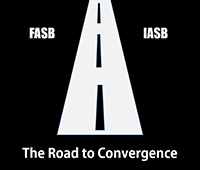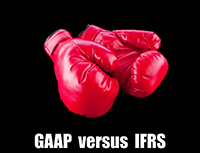 The Federal Accounting Standards Board (“FASB”) and the International Accounting Standards Board (“IASB”) came one step closer to convergence when on October 22, 2014 they agreed on the same broad definition of the world “Lease”. The agreed definition: “A Lease is a contract that conveys the right to use an asset for a period of time in exchange for consideration”.
The Federal Accounting Standards Board (“FASB”) and the International Accounting Standards Board (“IASB”) came one step closer to convergence when on October 22, 2014 they agreed on the same broad definition of the world “Lease”. The agreed definition: “A Lease is a contract that conveys the right to use an asset for a period of time in exchange for consideration”.
To graduates of any college Business Law class, the fact that it has taken the FASB and the IASB so long to come up with the same definition of the term “lease” that is found in the definition section of their law textbook, appears to be ridiculous. But the truth is that steps like this can have unintended consequences, so the analysis and thought process must be carefully and fully completed.
Why Is Convergence Important?
The United States of America, and therefore the Securities and Exchange Commission (“SEC”), currently requires that all publically traded companies comply with Generally Accepted Accounting Principles (“GAAP”) when producing their financial statements. GAAP is determined by the FASB. Most of the rest of the world prepares their financial statement in accordance with International Financial Reporting Standard (“IFRS”), which is determined by the IASB.
 Physical, economic and political barriers have been reduced over the years, thereby opeining up international trade to many more companies. While 50 years ago only a few companies would need to produce financial statements for both U.S. and foreign lenders and investors, today many even small companies are dealing with international sets of lenders and investors, which often has these companies having to deal with how to prepare financial statements when GAAP is different than IFRS. Only having to comply with one set of accounting rules will save these companies a lot of money in legal and accounting fees. Such savings can be passed on with either lower prices or higher earnings, or various combinations of both. It would also remove the current uncertainty regarding compliance.
Physical, economic and political barriers have been reduced over the years, thereby opeining up international trade to many more companies. While 50 years ago only a few companies would need to produce financial statements for both U.S. and foreign lenders and investors, today many even small companies are dealing with international sets of lenders and investors, which often has these companies having to deal with how to prepare financial statements when GAAP is different than IFRS. Only having to comply with one set of accounting rules will save these companies a lot of money in legal and accounting fees. Such savings can be passed on with either lower prices or higher earnings, or various combinations of both. It would also remove the current uncertainty regarding compliance.
So Why Is Convergence Difficult?
Both GAAP and IFRS have long histories (GAAP by far the longest) of “guidance” given through interpretative rulings. Even small changes is language can cause massive alterations to the complied guidance.
Why Worry About the Definition of a Lease
Take for example the definition of a lease. While it is very clear to a lawyer and to most non-accountants what a lease is, the accounting definition of a lease makes a world of difference. Both GAAP and IFRS require that leases be reported on a company’s Balance Sheet as a liability. Generally, both GAAP and IFRS do not require service contracts be listed as a liability on a company’s Balance Sheet. As a result, if you can call an agreement a service contract instead of a lease you can increase the stated net worth of a company on its financial statements by that amount.
Therein Lies the Rub
The official guidance and interpretive rulings issued by the FASB and the IASB differ on what makes an agreement a service contract. For example, it is common for companies like IBM to require that lessees of IBM copy machines only use IBM technicians and only IBM parts and supplies. The concern is that as GAAP and IFRS converge definitions, unintended loopholes will be created wherein a company could argue that because IBM requires IBM technicians, parts and supplies, IBM has not transferred the “right to use the asset” and therefore they could report it as a service contract instead of a lease.
What is Next?
The FASB and the IASB will continue to work together to determine whether guidance as to interpretation will be needed. The FASB has stated that it believes that the revenue recognition standards issues last May will control this issue and that further guidance is not necessary. Several IASB members have sharply criticized this position and are calling for additional guidance. It will take several additional rounds of discussions and proposals as both entities to determine the final outcome. The road to convergence is rough. But the end result of having only one set of accounting rules is well worth the trip!
